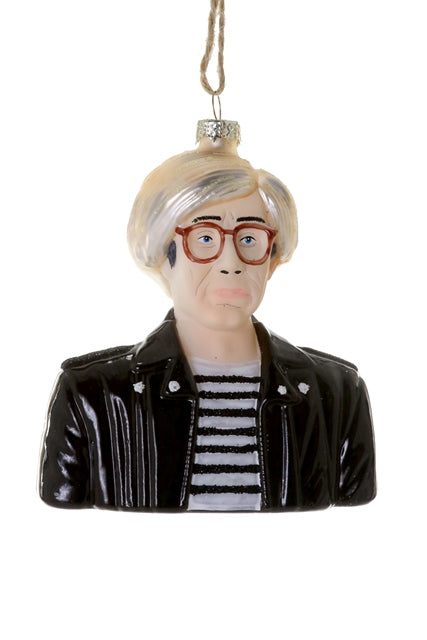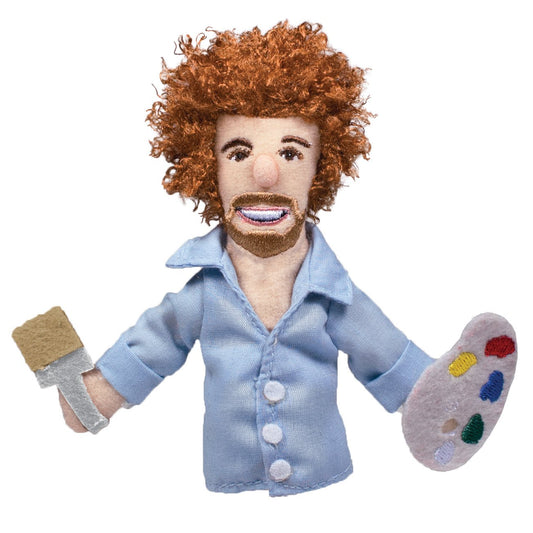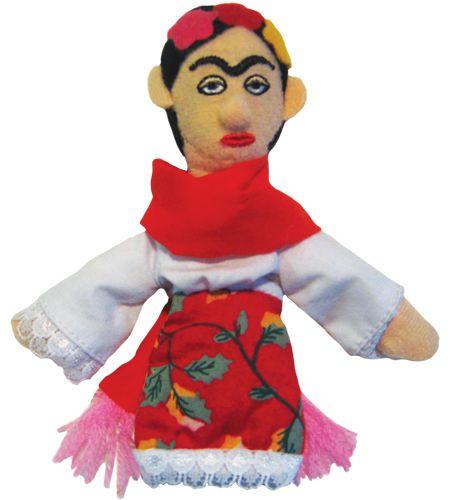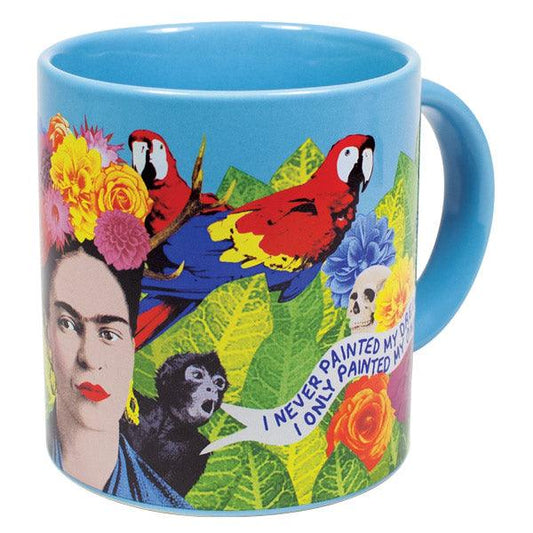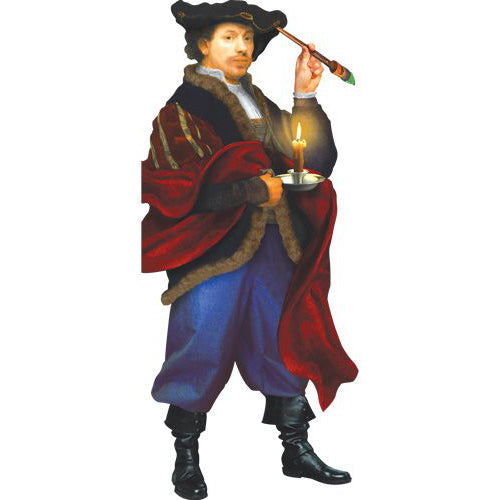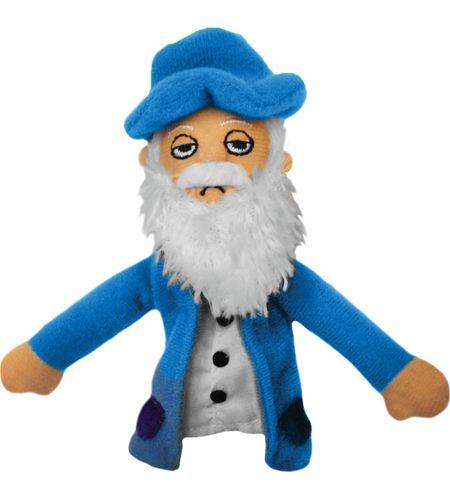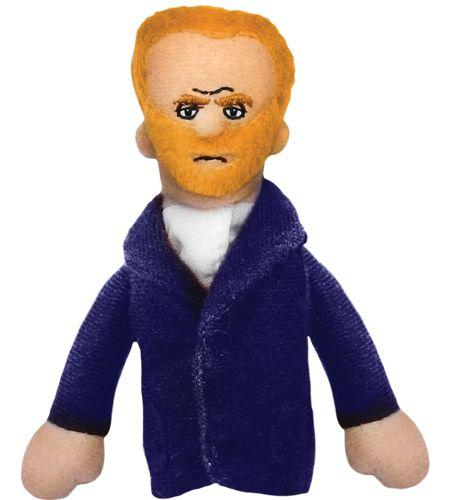Andy Warhol „Kleiner Denker“ Plüschpuppe
Andy Warhol „Kleiner Denker“ Plüschpuppe
The Unemployed Philosopher's Guild
Niedriger Lagerbestand
Verfügbarkeit für Abholungen konnte nicht geladen werden
Erleben Sie unendlichen Spaß mit Ihrer eigenen Andy Warhol Little Thinker-Puppe! Warhol war so ikonisch wie es nur sein kann und die Puppe ist so stylisch wie nur möglich – komplett mit seinem charakteristischen roten Blazer, dem kunstvollen schwarzen Rollkragenpullover, der roten Brille und den wilden weißen Haaren. Geben Sie sich nicht mit bloßem Ruhm zufrieden, holen Sie sich noch heute Ihre eigene Andy Warhol-Puppe!
Product Details
Product Details
- Product type: Plüschpuppe
- Shipping Dimensions: 11.0 × 6.0 × 4.0 inches (27.9 × 15.2 × 10.2 cm)
- Shipping Weight: 1.0 lb (16.0 oz; 454 g)
- SKU: SKU: SKU010002637
- UPC: 814229006626
In these collections: Alle Produkte, Andy Warhol, Die Gilde der arbeitslosen Philosophen, Geschenke unter 25 $, Plush Toys, Spaß & Kreativ, and Spielzeuge.
Share
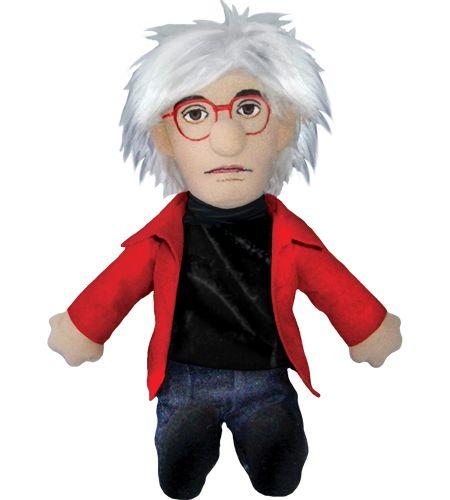

Über den Künstler
Andy Warhol
Andy Warhol (American, 1928 - 1987) was a visual artist, film director, and producer who was a leading figure in the visual art movement known as pop art. His works explore the relationship between artistic expression, advertising, and celebrity culture that flourished by the 1960s, and span a variety of media, including painting, silkscreening, photography, film, and sculpture. Some of his best-known works include the silkscreen paintings Campbell's Soup Cans (1962) and Marilyn Diptych (1962).
Mehr Andy Warhol
-
Eierlikörsuppe kann Karten
Normaler Preis Von $6.92 CADNormaler PreisStückpreis / pro -
Ornament aus mundgeblasenem Glas: Andy Warhol
Normaler Preis $23.71 CADNormaler PreisStückpreis / pro -
Cow by Andy Warhol - Die-Cut Sticker
Normaler Preis $8.39 CADNormaler PreisStückpreis / pro -
Pop-Art-Weihnachtskarten
Normaler Preis Von $6.29 CADNormaler PreisStückpreis / pro -
Andy Warhol Teller
Normaler Preis $41.96 CADNormaler PreisStückpreis / pro -
60s Silkscreen by Andy Warhol - Sticker Pack of 3
Normaler Preis $25.18 CADNormaler PreisStückpreis / pro -
Big Banana by Andy Warhol - Die-Cut Sticker
Normaler Preis $11.19 CADNormaler PreisStückpreis / pro -
Warhol Soup Can Stress Reliever
Normaler Preis $12.57 CADNormaler PreisStückpreis / pro -
Warhol Soup Can Canvas Tote Bag
Normaler Preis $37.75 CADNormaler PreisStückpreis / pro -
Gold Marilyn by Andy Warhol - Die-Cut Sticker
Normaler Preis $8.39 CADNormaler PreisStückpreis / pro

Über das Brand
The Unemployed Philosopher's Guild
The origins of the Unemployed Philosophers Guild are shrouded in mystery. Some accounts trace the Guild's birth to Athens in the latter half of the 4th century BCE. Allegedly, several lesser philosophers grew weary of the endless Socratic dialogue endemic in their trade and turned to crafting household implements and playthings. (Hence the assertions that Socrates quaffed his hemlock poison from a Guild-designed chalice, though vigorous debate surrounds the question of whether it was a "disappearing" chalice.)
Others argue that the UPG dates from the High Middle Ages, when the Philosophers Guild entered the world of commerce by selling bawdy pamphlets to pilgrims facing long lines for the restroom. Business boomed until 1211 when Pope Innocent III condemned the publications. Not surprisingly, this led to increased sales, even as half our membership was burned at the stake.
More recently, revisionist historians have pinpointed the birth of the Guild to the time it was still cool to live in New York City's Lower East Side. Two brothers turned their inner creativity and love of paying rent towards fulfilling the people's needs for finger puppets, warm slippers, coffee cups, and cracking up at stuff.
Most of the proceeds go to unemployed philosophers (and their associates). A portion also goes to some groups working on profound causes.
-
Museum Store Association Member
The Museum Store Association supports the cultural non-profit retail industry and the people who work in it.
-
Supports Non-profit Organizations
A portion of proceeds is donated to non-profit organizations. See description for details.
-
Designed in USA
Designed in the USA, with global manufacturing or assembly.
Mehr von The Unemployed Philosopher's Guild
-
Bob Ross magnetische Fingerpuppe
Normaler Preis $12.52 CADNormaler PreisStückpreis / pro -
Frida Kahlo Magnetische Fingerpuppe
Normaler Preis $12.52 CADNormaler PreisStückpreis / pro -
Pokal für moderne Kunst
Normaler Preis $27.90 CADNormaler PreisStückpreis / pro -
Frida Dreams Tasse
Normaler Preis $27.90 CADNormaler PreisStückpreis / pro -
Magnetische Fingerpuppe Diego Rivera
Normaler Preis $12.52 CADNormaler PreisStückpreis / pro -
James Baldwin „Kleiner Denker“ Plüschpuppe
Normaler Preis $33.57 CADNormaler PreisStückpreis / pro -
Rembrandt - Gestanzte Notizkarte mit Aufklebern
Normaler Preis $5.52 CADNormaler PreisStückpreis / pro -
Claude Monet Magnetische Fingerpuppe
Normaler Preis $12.52 CADNormaler PreisStückpreis / pro -
James Baldwin Magnetische Fingerpuppe
Normaler Preis $12.52 CADNormaler PreisStückpreis / pro -
Vincent van Gogh magnetische Fingerpuppe
Normaler Preis $12.52 CADNormaler PreisStückpreis / pro



